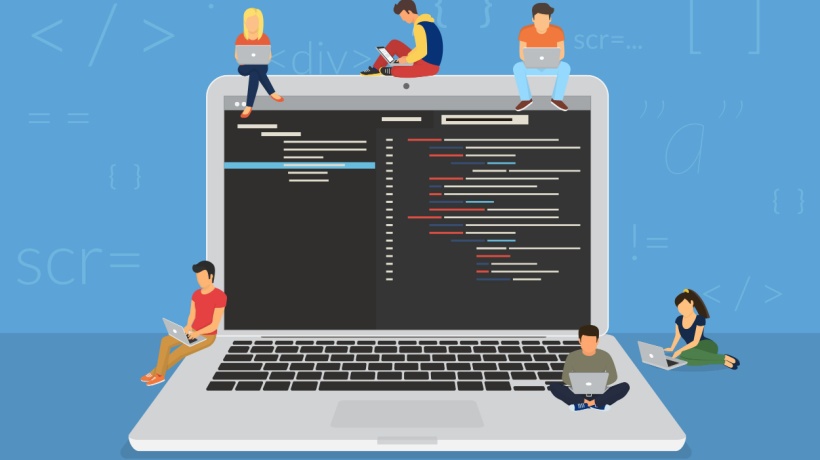Skills Are Complex!
Skills are hot. In workplace learning, upskilling, reskilling, and skills-first topics were the hottest last year. Until AI came along. Now, it’s all about prompt engineering… Anyway, if you’re not in the weeds of skills, let me illustrate how this seemingly straightforward concept is way more complex.
You don’t have computer skills! #NoComputerSkillsForTheWicked – LinkedIn
According To LinkedIn, I Don’t Have Computer Skills
Ha! I’m broken like AI chips on the table. This is sad because most applicants who applied for a certain job have computer skills, so they are a better match. In one sense, it’s true. I don’t have “computer” skills. But it all depends on the definition, and how you measure it. Here’s what I do have:
- A Master’s degree in Computer Science
- A thesis written in C++ 30 years ago, where I built an artificial neural network using backpropagation algorithm (and yes, I decided on a sigmoid function for trigger thresholds)
- 20+ years of experience leading technology-driven projects in workplace learning
- Dabbling in languages: C++, PHP, JavaScript, PEARL, Java, Python, R, etc.
- Ability to do magic by augmenting out-of-the-box learning authoring tools using JavaScript
- Extensive data literacy expertise, from building full programs to facilitating sessions at national conferences
- 6 months Harvardx Data Science certificate with hands-on R,…etc.
What I do not have, though, is the tag/label in my LinkedIn profile that literally says: computer.
The definition of a skill is one thing. What you do with the skill is another. How well you do what you do with the skill is a third. Old-fashioned ATS may look for exact words mined from a job description. In 2023, in the age of AI, this probably should not be the case.
Skills Are Also Not Binary
They have a scale. Measuring where your skills are on a scale is tricky. Here are some approaches:
- Not measuring it all
As funny as it may sound, the last three decades of content-driven LMS courses often functioned on this level. - Inference by what you do in the LMS
A notch above the first is the “what courses you have completed” approach, based on your LMS transcript. I just have to say, if the world only knew what I do in the LMS, I wouldn’t expect it to have much of an opinion about my presence. - Self-reporting
This is now getting the actual person involved. You can do this in horrible ways (e.g., by selecting 1-5), or based on a specific, measurable, and observable set of rubrics. Good start. Pretty subjective. - Peer assessment
Now you’re talking. This may still be biased, but at least you know what your perceived skills levels are. It’s fun to get some reality checks on the difference between your beliefs/intent and your perceived value to the team. - Manager/expert assessment
This approach takes time and is expensive, but it is an important piece of the puzzle. Especially if your performance is evaluated by the same person. - Reliable, valid, and practical assessments for real
Basically, a well-written assessment that does what it’s supposed to be doing. For technical skills, it involves using and applying those skills, not just selecting the culprit from a lineup of questions. As for “soft skills,” that’s another story.. More on that below. - Triangulate skills measures
None of the 1-6 items in this list will work by itself, most likely. You will need to figure out a combination of these elements.
About Soft Skills
Twenty years ago, I had to build empathy training for customer service agents. I swear, we’re still building empathy trainings. Back in those days, I made the mistake of treating soft skills as a standalone entity. For example, people learned about communication, active listening, etc. Today, I know it was a waste of time. Soft skills should not be taught out of context, but rather in the specific domain related to specific jobs to be done.
What people need is not a well-rounded education about how to communicate, but rather how to apply communication skills when sending an email, for example. I told you it’s more complex than it seems…
Skills Have Relationships
They overlap. They influence each other. They interfere. And they also fade. For example, in a call center where the learning curve is extremely important, agents may forget skills when they don’t use them for a while, which complicates the prediction model (I just read this study on parametric and non-parametric learner regressions to predict the learning curve change).
And Once You Get The Handle On All This…
There is the other side, which is often a bigger mess: what skills does one need in a specific organization and role? And what level of skills is required to do well there?
If you lived through the exciting times of the competency-based era, you know what a mess that was. Also a good moneymaker for large-scale HR systems that promised to solve your nine-boxing and competency headaches. Never did.
But, Let’s Be Optimistic!
Let’s assume you have a well-defined skillset needed for the job and that you managed to build some sort of skills profile for people. Now, you can show the skills gap! Imagine, as a manager, you can see all your direct reports’ skills profile with the gap they need to work on. As an extension, you may even see the gap between their current role and the next move. Lovely!
There’s one thing left: how to get from A to B. What is the fastest path for closing the skills gap? Hint: it’s not about taking enough courses. That’s a good topic for another article itself.
Where are you on this complex journey?
Originally published at www.linkedin.com.

